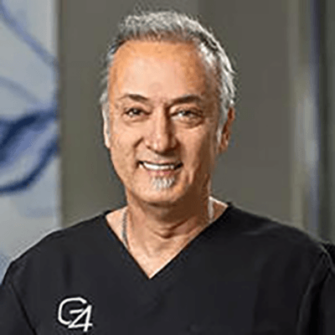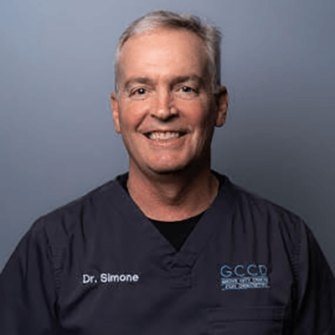Affording Dental Care When Insurance Doesn't Cover It

It’s easy to avoid going to the dentist, especially if you don’t have a ton of extra cash to shell out for a cleaning. But avoiding the dentist altogether can lead to a much larger bill down the line.
Even with dental insurance, you could end up with a very sizable bill after a major procedure, such as a root canal. At that point, the question becomes: How are you going to pay for it?
If you don’t have a plan for covering medical expenses, then paying for an entire dental procedure out of pocket may be out of the question. Instead, you may have to consider working out a payment plan, looking into financing options, or helping dental students learn with your teeth. Here are some options to consider:
Dental insurance
For whatever reason, the medical financial infrastructure in both the United States and many other countries have determined the shiny bones in your mouth hole do not qualify for health insurance. That means if you want dental services, you will likely need to purchase separate dental coverage, whether through an employer or on your own.
A 2019 report from the U.S. Centers for Disease Control and Prevention stated the following:
The range of covered services among children and adults with public insurance is a key factor affecting dental care use. Public dental insurance coverage among children offers comprehensive dental benefits (e.g., diagnostic, preventive, and restorative services), whereas coverage for adults is commonly limited to emergency services only. Cost remains a major barrier to receipt of dental services across the lifespan and is the most common reason among working-age adults for not seeking dental care.
Even with dental insurance, it is likely that not all of your dental costs will be covered by it. Talking to the dentist’s office in advance can help to provide a better picture of how your final bill will look.
Some dentists like Bryan J Simone DDS with The Grove City Center for Dentistry will work directly with a patient’s insurance company to identify their financial obligation in advance of the appointment. “This way, the patient knows what the deductible will be and what [portion of the bill] they are responsible for,” Simone says.
Whether or not you have a job that offers dental coverage, you may have access to a health savings account (HSA) or a federal savings account (FSA). These types of savings accounts allow users to direct part of their pretax paychecks into the account and use that money to cover medical expenses, such as certain types of dental costs. If your employer offers this benefit, ask if they can provide any guidance about how the account works and which services are covered. If you are self-insured or need more guidance about HSAs, the federal government provides information, as well.
If you are on Medicaid, you may have to look online to find out what specific procedures qualify for coverage in your state. Cosmetic dentistry is unlikely to qualify, but there are some cosmetic offerings -- such as braces or dentures -- that may pass the test. For older Americans, basic Medicare plans do not offer much, if anything, when it comes to dental, so you’ll have to look at supplemental coverage for any denture-related needs.
Payment plans or discount programs
You can ask your provider if they’ll allow you to work out a payment plan. This may only be an option if you’re a long-time patient, but it can’t hurt to ask.
Your provider may offer a membership program, as Dr. Simone does. For example, his dental practice’s adult plan includes two dental exams and cleanings per year, one complete set of digital X-rays, and one oral cancer screening for a set fee. The patient also receives a discount for any other procedures they may need throughout the year.
A program like this could save you money overall, as regular checkups could catch an issue before it requires more expensive dental work, like tooth extraction or extensive surgery.
Dental financing
Even if you can manage the cost of a regular check-up, and it leads to the discovery of dental problems, you could be looking at a more expensive bill than you had anticipated. If your dentist doesn’t offer a payment plan or allow you to pay your bill in parts, there may be other financing options available.
“One of the primary means patients use is a medical/dental patient financing option, such as Care Credit,” says dentist and personal finance blogger Dr. Jason Cabler. “They can put their balance on their card and pay monthly payments for an agreed-on period of time.”
Care Credit is a health care-designated credit card. Cabler says he understands why these programs exist, but as a finance blogger, he generally cautions his readers against taking out personal loans to pay for their lives whenever possible.
If you do opt for a finance plan, try to pay more than the minimum amount due each month to minimize the impact of the interest rate on the total cost of your bill. That will lead to the best results for your credit score, which will make situations like this easier down the road.
Other less expensive options
Dental schools are another alternative for low-cost dental care. Don’t worry, the students won’t be on their own.
Dr. Mike Golpa, dental surgeon and CEO of the G4 by Golpa dental implant centers, talks about how dental school students train on real patients and even perform routine procedures.“Care is provided at [a] reduced cost,” he says, “and a licensed dentist always supervises the process.”
Golpa directed us to the American Dental Association Dental Schools list as a resource to guide your search. He also recommends seeking out clinical trials for low-cost or free dental care and community health centers that operate on a sliding scale (costs that are based on your income).
Investing in oral hygiene
Finding ways to pay for dental care can be like pulling teeth. But the longer you put off the work, the more expensive it’ll become. Brush your teeth, floss, and budget your way to better oral health.

Dr. Jason Cabler is a practicing dentist and owner of the Celebrating Financial Freedom blog from Nashville, TN. On his website, he teaches how to make more money, get out of debt, manage money, financial concepts, and everything else you need to live a better financial life.

Dr. Mike Golpa was among the first dentists in the United States to embrace the All-on-4® treatment concept more than a decade ago. After routinely performing every aspect of the procedure (planning, placement, and delivery) thousands of times, Golpa and his team have improved and perfected it.

Dr. Bryan Simone is a 1992 graduate of The Ohio State University College of Dentistry. He joined The Grove City Center for Dentistry immediately following graduation and has been practicing general, cosmetic, and restorative dentistry for more than 24 years.


